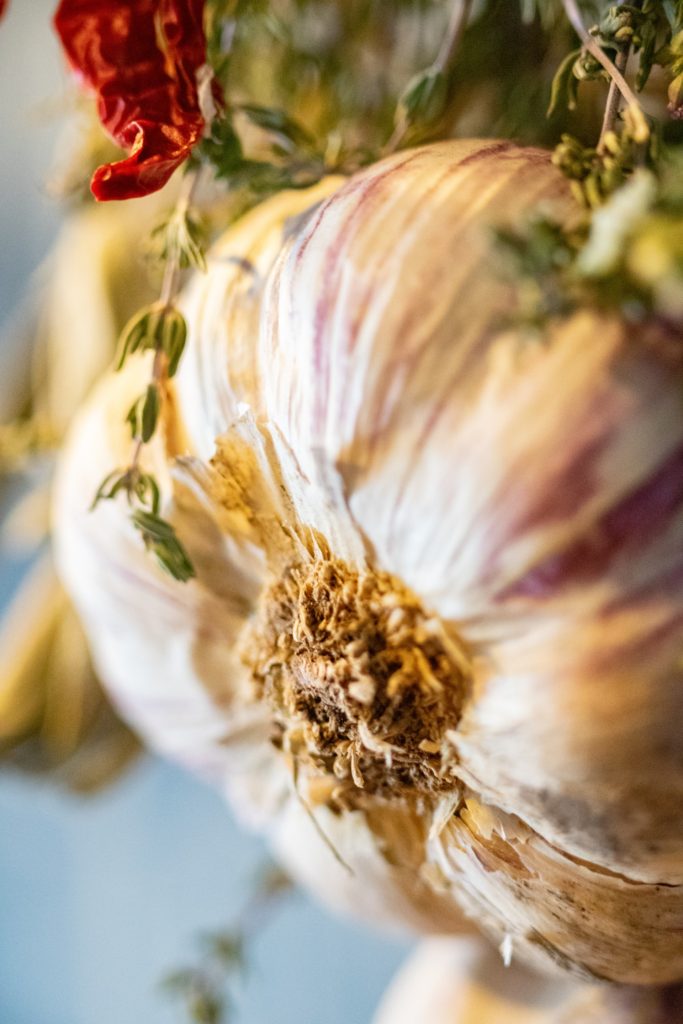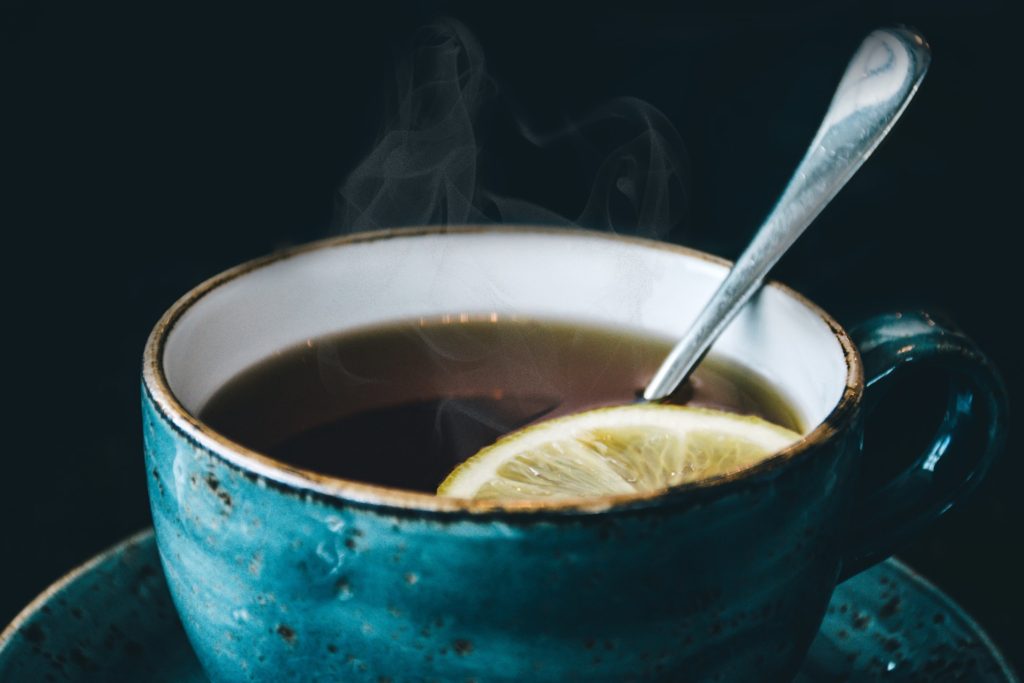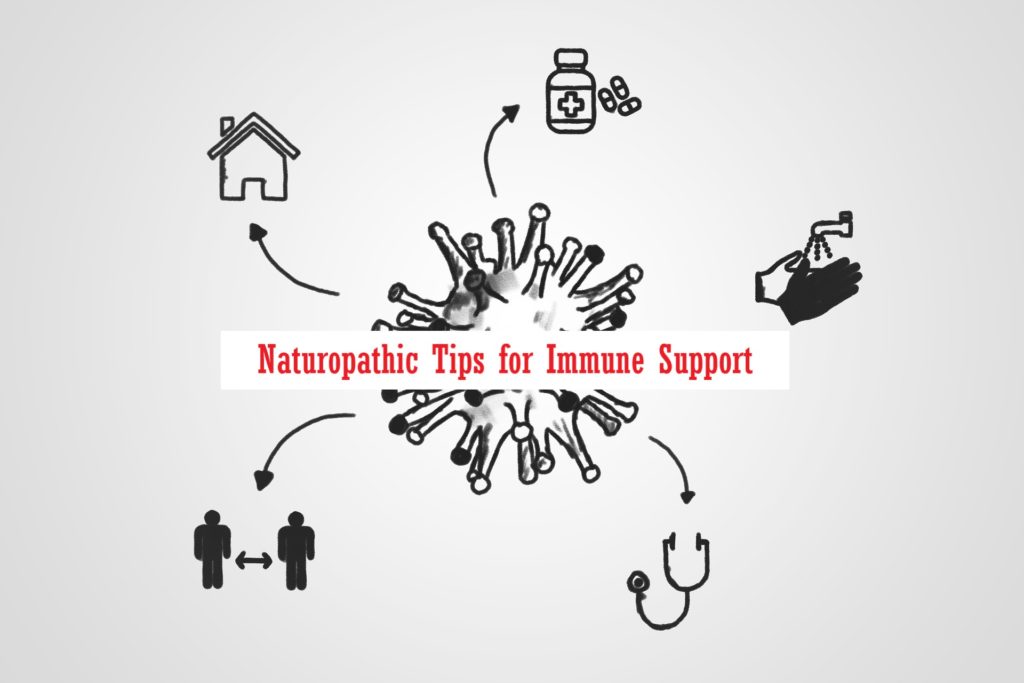GENERAL HYGIENE TIPS:

- Wash your hands often and thoroughly for at least 20 seconds!!! Be sure to wash your hands after touching any metal surfaces in public. If you do not have access to water or soap at the moment, you may use hand sanitizer, but be sure to apply it to your ENTIRE hand for at least 20 seconds. (same as handwashing).
- Wash your hands and/or take a shower immediately upon returning home to reduce the likelihood of exposing your living space to any pathogens from the outside.
- If you do happen to experience a sneeze or cough, please do so on the inside of your arm. Do not cough or sneeze directly into the air.
- Limit or avoid touching your face.
- Maintain adequate social distance while out in public and around people with compromised immune systems (i.e. the elderly, young children, and individuals with diabetes, cancer, individuals taking corticosteroid medications, etc.) *The general recommendation is 6-10 feet*
- Drink plenty of water!
- Be sure to get plenty of sleep, between 6-8 hours per night.
- Maintain a clean and uncluttered living space.
- If you do experience symptoms, such as, a sore throat, dry cough, muscle and/or joint pain, shortness of breath, chest congestion, and headache but DO NOT have a fever, please call your local urgent care unit to inquire whether it is necessary to go. Some medical centers and insurance plans offer a 24-Hour Nurse Hotline that you can call to see if urgent care is necessary. Some also provide a virtual care phone app that allows you to speak with a physician via a video phone conference to assess the severity of your symptoms.
- On the other hand, if you are experiencing any upper respiratory symptoms (such as those listed above) AND you have a fever, please go to your local urgent care unit to be further assessed.
NUTRITION FOR OVERALL IMMUNE SUPPORT:
Foods and spices that have immune supportive properties:

- Thyme
- Common Sage
- Rosemary
- Cinnamon
- Clove
- Oregano
- Garlic (Either raw or added at the end of cooking. Do not cook for more than 10 minutes to preserve the active medicinal compound “allicin”)
- Onion
- Cumin
- Lemons and other citrus fruits
- Mushrooms
Liver and Blood Cleansing Foods
- Beets and beet greens
- Leafy green vegetables: kale, spinach, collard greens, mustard greens, turnip greens, chard, dandelion greens, etc.
- Cruciferous vegetables (contain sulfur*): broccoli, cauliflower, cabbage, kale, brussel sprouts, arugula, radishes, watercress, collard greens
- Allium vegetables (contain sulfur*): garlic, onions, leeks, shallots, and chives
- Beans (contain sulfur*)
- Lemons
- Ginger
- Apples
- Turmeric
- Carrots
- Avocados
*Sulfur is necessary to produce glutathione in the liver for detoxification. Glutathione is also important for managing inflammation in the lungs.*
Foods high in Vitamin A (carotenoids): carrots, cantaloupe, broccoli, spinach, sweet potatoes, butternut squash, dried apricots, mangos, red bell peppers, black eyed peas, tomatoes
*Vitamin A is important for regulating mucosal immunity in our airways, lungs, and digestive tract*
Foods high in Vitamin C: bell peppers, tomatoes, citrus fruits (oranges, lemon, limes, clementines, grapefruit), berries, broccoli, pineapple, potatoes, brussel sprouts, kiwi, mangos, cantaloupe, cauliflower, green peas
*Several immune cells accumulate vitamin C. Vitamin C helps protect the integrity of these immune cells so that they may function optimally and ultimately kill microbes. In other words, it makes our immune cells stronger and more efficient. Vitamin C also acts as an antioxidant – which means that it helps reduce damage that may occur in the midst of battling pathogenic invaders.*
Foods high in Vitamin D: mushrooms, fatty fish (salmon, tuna, mackerel), D-fortified foods (orange juice, soy milk, cereals, and some dairy products), cheese, egg yolks
* 95% of my patients are deficient in Vitamin D. A lack of vitamin D increases one’s susceptibility to both infectious and chronic disease. Sufficient Vitamin D levels can reduce your risk of infectious disease by strengthening your innate immune system. Vitamin D turns on key peptides in your immune system that trigger a strong anti-microbial response, allowing you to quickly and effectively fight off invaders. *
Fermented Foods for Beneficial Bacteria: yogurt (dairy and/or non-dairy), sauerkraut or other pickled vegetables, miso, tempeh, kefir
* The “good” bacteria in our gut are necessary for supporting our immune system by increasing the expression of TGF-beta and IL-10, which are important in signaling the production of IgA. Like Vitamin A, IgA is important for regulating mucosal immunity. IgA is the primary antibody in our entire digestive system (as well as our lungs!) and is our body’s primary defense against infection. *
DIY Herbal Teas (straight from your kitchen cupboard):

- Thyme Tea– ½ tsp of herb per 1 cup of hot water. Cover and steep for 10-15 mins. Add honey and/or juice of lemon to taste. You can also add grated/sliced ginger root to cup before steeping. Drink 1 cup 1-3 times per day.
- Sage Tea – ½ tsp of herb per 1 cup of hot water. Cover and steep for 10-15 mins. Add honey to taste. Drink 1 cup 1-3 times per day. Be sure to use “Common Sage” or “Garden Sage”, NOT White Sage.
- Peppermint (or Spearmint) Tea – ½ tsp of herb per 1 cup of hot water. Cover and steep for 10-15 mins. Add honey and/or juice of lemon to taste. Drink 1 cup 1-3 times per day.
- NOTE: You can experiment and mix these herbs to make your very own herbal tea blend. Just make sure to keep the ratio of ½ tsp of herb per 1 cup of hot water. Cover and steep for 10-15 mins. Add ginger, honey, and/or lemon to taste. Drink 1 cup 1-3 times per day.
Tonics (for general detoxification and wellness):
- Lemon Flush Tonic: Squeeze juice of ½ – 1 whole lemon into a cup. Drop the remainder of the lemon in and fill with hot water. Add honey to taste and a pinch of cayenne (optional) for more of an immune kick. Drink 1-3 times per day.
- Apple Cider Vinegar Tonic: 1-2 tbsp raw ACV with 1 tsp honey in a glass of warm water. You may also add a splash of lemon, ¼ – ½ tsp cinnamon, and/or a pinch of cayenne pepper. Drink 1-3 times per day.
- Garlic Tonic: 1-2 crushed cloves of garlic in 1 cup hot water. Cover and steep for 20 mins. Add honey, lemon, or a pinch of cayenne. Drink 1-3 times per day.
- Onion Tonic: ½ – 1 cup raw chopped or sliced onions to 1 cup warm water. Cover and steep for 10-15 mins. You can also add a few slices of fresh ginger while steeping. Add honey to taste. Drink 1-3 times per day.
- Ultimate Immune Tonic: Put equal parts onion, garlic, and ginger root in a mason jar and fill the jar approximately 1 inch from the top. Add 1 tsp of cayenne pepper (or crushed chili pepper) and 1-2 tbsp honey. Fill the jar with raw apple cider vinegar and place in a cool, dark place for 2 weeks. Shake at least twice daily. After 2 weeks, strain the mixture into another glass jar with an air-tight lid. Take 1-2 tbsp daily.
AT-HOME HYDROTHERAPY:
- Steam Inhalation – See the attached handout below for instructions. I usually have my patients do this during daily showers.
- Wet Sock Treatment – Aside from dietary counseling, this is THE most frequent recommendation I make in my office for general wellness, immune support, detoxification, congestion relief, and stress management. And that’s because it is INCREDIBLY effective, AND it is FREE.
AIR PURIFICATION & STRESS MANAGEMENT:

Essential Oil Diffusers using the following essential oils, many of which are calming and uplifting, and possibly antiseptic:
- Bergamot
- Bitter Orange
- Clove
- Common Sage
- Eucalyptus
- Grapefruit
- Lavender
- Lemon
- Lemon Balm
- Oregano
- Peppermint
- Rosemary
- Spearmint
- Sweet Orange
- Thyme
**You can purchase both the diffuser and your choice of essential oils at any Ross, Marshall’s and TJ Maxx at extremely discounted prices, as well as, Walgreens, Target, and Walmart. They are also available at Sprouts Farmers Market (if near you). Put 5-10 drops of the essential oil in the diffuser and let it help manage your stress and purify the air in your living or work space. You can also add these essential oils to hot baths and showers as a wonderful steam inhalation treatment. **
SUPPLEMENTS MOST OF MY PATIENTS USE FOR GENERAL IMMUNE SUPPORT:
- Vitamin C
- Vitamin D3 – You will need to consult with your physician about your own vitamin D levels to determine the appropriate dosage for you.
- N-Acetyl Cysteine (NAC) – NAC is needed support GSH production. It is also a powerful mucolytic (aka a natural decongestant). NOTE: Dietary sources of cysteine include lean chicken breasts, turkey, tuna, lentils, oatmeal, garlic, eggs, yogurt and sunflower seeds.
- Zinc lozenges – Zinc serves as a “signal” for immune cells to “turn on”.
- Probiotics
- Cod Liver Oil – Yes. Cod liver oil. I’m going old school. Our grandmas weren’t fools. It works, and it’s affordable. It naturally contains EPA (an omega-3 fatty acid), vitamin A and vitamin D for immune and mood support. I personally like Nordic Naturals brand as it is extremely palatable in taste and consistency.
- Elderberry Syrup – Elderberry gummies, lozenges, tinctures, or capsules usually also suffice. Elderberry contains vitamins A and C, and acts as a diaphoretic (induces perspiration). If you have the means and space to do so, you can make your own elderberry syrup as it is more cost-effective. If you know of a local herb shop, you may purchase dried elderberries there. You can also purchase elderberries in bulk at https://www.mountainroseherbs.com/products/elder-berries/profile. You can also find a recipe for elderberry syrup on their blog at https://blog.mountainroseherbs.com/elderberry-syrup-recipe. Please be mindful that there will more than likely be a delay in your order due to recent closures and reduced services.
- Medicinal Mushrooms – Includes Reishi, Lion’s Mane, Turkey Tail, Chaga, Maitake, and Shiitake – whether it’s one or a combination of these. I have personally seen a LOT of success with this supplement in populations with autoimmune disease, as well as the general patient population. You can even incorporate these in your diet as a food. These do not over-stimulate the immune system and cause an autoimmune flare as a result.
In health,
Dr. Richmond
REFERENCES:
- Abuhamdah S, Ballard C, Burns A, et.al. Pharmacological profile of an essential oil derived from Melissa officinalis with anti-agitation properties: Focus on ligand-gated channels. Journal of Pharmacy and Pharmacology. 2008; 60: 377-384. doi: 10.1211/jpp.60.3.0014.
- Aldini G, Altomare A, Baron G, et.al. N-Acetylcysteine as an antioxidant and disulfide breaking agent: the reasons why. Free Radical Research. 2018 Jul; 52(7): 751-762. doi: 10.1080/10715762.2018.1468564.
- Alkazmi LM, Batiha GE, Beshbishy AM, et.al. Syzygium aromaticum L. (Myrtaceae): Traditional Uses, Bioactive Chemical Constituents, Pharmacological and Toxicological Activities. Biomolecules. 2020 Jan; 10(2): 202. doi: 10.3390/biom10020202.
- Antonelli M, Bellinazzi C, Donelli D, et.al. Effects on lavender on anxiety: A systematic review and meta-analysis. Phytomedicine. 2019 Dec; 65: 153099. https://doi.org/10.1016/j.phymed.2019.153099.
- Azimullah S, Javed H, Ojha SK, et.al. Pharmacological Properties and Molecular Mechanisms of Thymol: Prospects for Its Therapeutic Potential and Pharmaceutical Development. Frontiers in Pharmacology. 2017 Jun; 8:380. doi: 10.3389/fphar.2017.00380.
- Bals R, Branscheidt M, Eschmann R, et.al. The role of vitamin D in pulmonary disease: COPD, asthma, infection, and cancer. Respiratory Research. 2011; 12(1): 31. doi: 10.1186/1465-9921-12-31.
- Banchereau J, O’Garra A, Pascual V. From IL-2 to IL-37: the expanding spectrum of anti-inflammatory cytokines. Nature Immunology. 2012 Oct; 13(10): 925-931. doi: 10.5402/2011/892971.
- Barber T, Cabazuelo MT, Marin MP, et.al. Vitamin A Deficiency and the Lung. Nutrients. 2018 Sep; 10(9) 1132. doi: 10.3390/nu10091132.
- Beg S, Dhakad AK, Pandey VV, et.al. Biological, medicinal, and toxicological significance of Eucalyptus leaf essential oil: a review. Journal of the Science of Food and Agriculture. 2018 Feb; 98(3): 833-848. https://doi.org/10.1002/jsfa.8600.
- Belkaid Y., Hall JA, Grainger JR, Spencer SP. The Role of Retinoic Acid in Tolerance and Immunity. Immunity. 2011 Jul 22; 35(1): 13-22. doi: 10.1016/j.immuni.2011.07.002.
- Bendelac A, Bunker JJ. IgA responses to microbiota. Immunity. 2018 Aug 21; 49(2): 211-224. doi: 10.1016/j.immuni.2018.08.011.
- Benson KF, Davis R, Stamets P, et.al. The mycelium of the Trametes versicolor (Turkey tail) mushroom and its fermented substrate each show potent and complementary immune activating properties in vitro. BMC Complementary and Alternative Medicine. 2019 Dec; 19: 342. doi: 10.1186/s12906-019-2681-7.
- Benson KF, Davis R, Stamets P, et.al. Differential Immune Activating, Anti-Inflammatory, and Regenerative Properties of the Aqueous, Ethanol, and Solid Fractions of a Medicinal Mushroom Blend. Journal of Inflammation Research. 2020 Feb; 13: 117-131. doi: 10.2147/JIR.S229446.
- Bozonet SM, Carr AC, Pullar JM, Vissers MC. Enhanced Human Neutrophil Vitamin C Status, Chemotaxis and Oxidant Generation Following Dietary Supplementation with Vitamin C-Rich SunGold Kiwifruit. Nutrients. 2015 Apr 9; 7(4): 2574-2588. doi: 10.3390/nu7042574.
- Bourdeau V, Hanrahan JW, Liao J, et.al. Cutting Edge: 1,25-Dihydroxyvitamin D3 is a Direct Inducer of Antimicrobial Peptide Gene Expression. Journal of Immunology. 2004 Sep; 173(5): 2909-2912. doi: 10.4049/jimmunol.173.5.2909.
- Brown BI, Minich DM. A Review of Dietary (Phyto)Nutrients for Glutathione Support. Nutrients. 2019 Sep; 11(9): 2073. doi: 10.3390/nu11092073.
- Buckle J, Varney E. Effect of Inhaled Essential Oils on Mental Exhaustion and Moderate Burnout: A Small Pilot Study. Journal of Alternative and Complementary Medicine. 2013 Jan; 19(1): 69-71. https://doi.org/10.1089/acm.2012.0089.
- Cantorna MT, Lin YD, Snyder L, Yang L. Vitamin D and 1,25(OH)2D Regulation of T Cells. Nutrients. 2015 Apr; 7(4): 3011-3021. doi: 10.3390/nu7043011.
- Carr AC, Maggini S. Vitamin C and Immune Function. Nutrients. 2017 Nov; 9(11): 1211. doi: 10.3390/nu9111211.
- Cavanaugh HM, Wilkinson JM. Biological activities of lavender essential oil. Phytotherapy Research. 2002 Jun; 16(4): 301-308. https://doi.org/10.1002/ptr.1103.
- Cerutti A, Gutxeit C, Magri G. Intestinal IgA production and its role in host-microbe interaction. Immunological Reviews. 2014 Jul; 260(1): 76-85. doi: 10.1111/imr.12189.
- Chang HC, Ho YH, Tsu TY, et.al. Daily Intake of Probiotics with High IFN-y/IL-10 Ratio Increases the Cytoxicity of Human Natural Killer Cells: A Personalized Probiotic Approach. Journal of Immunology Research. 2014; 2014: 721505. doi: 10.1155/2014/721505.
- Chazot P, Forster J, Haskell-Ramsay J, et.al. Volatile Terpenes and Brain Function: Investigation of the Cognitive and Mood Effects of Mentha x Piperita L. Essential Oil with In Vitro Properties Relevant to Central Nervous System Function. Nutrients. 2018 Aug; 10(8): 1029. doi: 10.3390/nu10081029.
- Dosoky NS, Setzer WN. Biological Activities and Safety of Citrus spp. Essential Oils. International Journal of Molecular Sciences. 2018 Jul; 19(7): 1966. doi: 10.3390/ijms19071966.
- Eggett DL, Gibson J, Han X, Parker TL. Bergamot (Citrus bergamia) Essential Oil Inhalation Improves Positive Feelings in the Waiting Room of a Mental Health Treatment Center: A Pilot Study. Phytotherapy Research. 2017 May; 31(5): 812-816. doi: 10.1002/ptr.5806.
- Fan X, Jiao H, Lin H, et.al. Vitamin A deficiency Impairs Mucin Expression and Suppresses the Mucosal Immune Function of the Respiratory Tract in Chicks. PLoS One. 2015; (10(9): e0139131. doi: 10.1371/journal.pone.0139131.
- Finklea JD, Grossmann RE, Tangpricha V. Vitamin D and Chronic Lung Disease: A Review of Molecular Mechanisms and Clinical Studies. Advances in Nutrition. 2011 May; 2(3): 244-253. doi: 10.3945/an.111.000398.
- Foong RE, Zosky GR. Vitamin D Deficiency and the Lung: Disease Initiator or Modifier? Nutrients. 2013 Aug; 5(8): 2880-2900. doi: 10.3390/nu5082880.
- Fukada T, Hojyo S. Roles of Zinc Signaling in the Immune System. Journal of Immunology Research. 2016 Oct; 2016: 6762343. doi: 10.1155/2016/6762343.
- Gibson GR, Saulnier DMA, Spinler JK, Versalovic J. Mechanisms of Probiosis and Prebiosis: Considerations for Enhanced Functional Foods. Current Opinion in Biotechnology. 2009 Apr; 20(2): 134-141. doi: 10.1016/j.copbio.2009.01.002.
- Gombart AF, Maggini S, Pierre A. A Review of Micronutrients and the Immune System – Working in Harmony to Reduce the Risk of Infection. Nutrients. 2020 Jan; 12(1): 236. doi: 10.3390/nu12010236.
- Gramza-Mishalowska A, Sidor A. Advanced research on the antioxidant and health benefit of elderberry (Sambucus nigra) in food – a review. Journal of Functional Foods. 2015 Oct; 18(B): 941-958. https://doi.org/10.1016/j.jff.2014.07.012.
- Haase H, Maares M. Zinc and immunity: An essential interrelation. Archives of Biochemistry and Biophysics. 2016 Dec; 611: 58-65. https://doi.org/10.1016/j.abb.2016.03.022.
- Haskell C, Kennedy DO, Milne A, et.al. Effects of cholinesterase inhibiting sage (Salvia officinalis) on mood, anxiety and performance on a psychological stressor battery. Neuropsychopharmacology. 2005; 31: 845–852. https://doi.org/10.1038/sj.npp.1300907.
- Hughes DA, Norton R. Vitamin D and respiratory health. Clinical and Experimental Immunology. 2009 Oct; 158(1): 20-25. doi: 10.1111/j.1365-2249.2009.04001.x.
- Kennedy DO, Little W, Scholey AB. Attenuation of laboratory-induced stress in humans after acute administration of melissa officinalis (Lemon balm). Psychosomatic Medicine. 2004;66:607–613. doi: 10.1097/01.psy.0000132877.72833.71.
- Kindon M, Lysiak GP, Mlynarczyk K, et.al. The Content of Selected Minerals, Bioactive Compounds, and the Antioxidant Properties of the Flowers and Fruit of Selected Cultivars and Wildly Growing Plants of Sambucus nigra L. Molecules. 2020 Feb; 25(4): 876. doi: 10.3390/molecules25040876.
- Lu SC. Glutathione Synthesis. Biochemica et Biophysica Acta. 2013 May; 1830(5): 3143-3153. 10.1016/j.bbagen.2012.09.008.
- Markowiak P, Slizewska K. Effects of Probiotics, Prebiotics, and Symbiotics on Human Health. Nutrients. 2017 Sep; 9(9): 1021. doi: 10.3390/nu9091021.
- Maywald M, Rink L, Wessels I. Zinc as a Gatekeeper of Immune Function. Nutrients. 2017 Nov; 9(12): 1286. doi: 10.3390/nu9121286.
- Mills KHG, Raverdeau M. Modulation of T Cell and Innate Immune Responses by Retinoic Acid. Journal of Immunology. 2014 Apr 1; 192(7):2953-2958. doi: 10.4049/jimmunol.1303245.
- Rahman I. Inflammation and the Regulation of Glutathione Level in Lung Epithelial Cells. Antioxidants & Redox Signaling. 1999 Dec; 1(4): 425-447. doi: 10.1089/ars.1999.1.4-425.
- Ross CA. Vitamin A and retinoic acid in T cell-related immunity. American Journal of Clinical Nutrition. 2012 Nov; 96(5): 1166S-1172S. doi: 10.3945/ajcn.112.034637.
- Semba RD. Vitamin A as “Anti-Infective” Therapy, 1920-1940. Journal of Nutrition. 1999 Apr; 129(4): 783-789. https://doi.org/10.1093/jn/129.4.783.
- Stamets P, Zwickey H. Medicinal Mushrooms: Ancient Remedies Meet Modern Science. Integrative Medicine. 2014 Feb; 13(1): 46-47. https://www.ncbi.nlm.nih.gov/pmc/articles/PMC4684114/.
